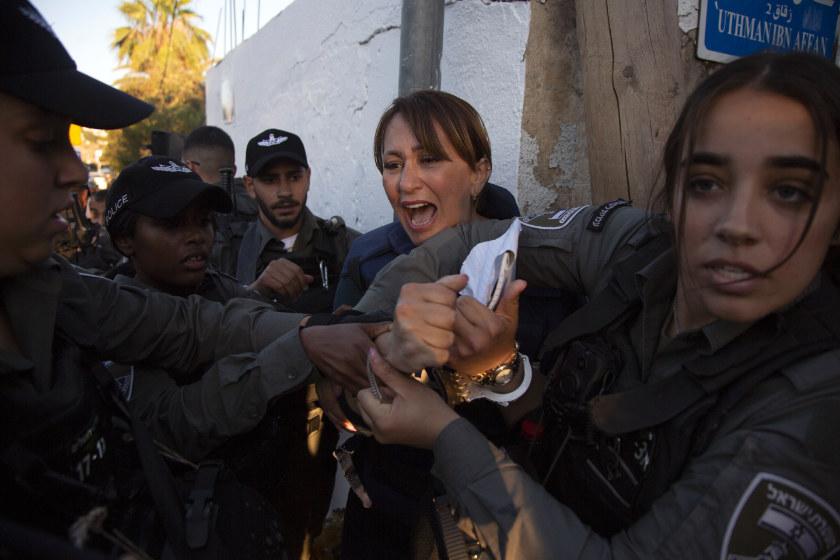Waging Peace
Since May, journalists covering events from Gaza to Jerusalem have been systematically targeted by the Israeli state. Among the incidents: The bombing of a building housing media outlets in Gaza; the arrest and assault of journalists covering the forced displacement of families in East Jerusalem and provocations at the al-Aqsa Mosque; and the battery and arrest of citizen journalists documenting settler and state violence in East Jerusalem.
The targeting of journalists by Israel is not a new development, but has occurred with increased frequency amid the recent flare-up in tensions. On June 14, Palestine Deep Dive held an event with two Palestinian journalists to discuss “Israel’s War on the Media.”
Mona Shtaya, local advocacy manager at 7amleh, a non-profit that helps Palestinian civil society effectively use digital platforms, noted that the issue of free speech goes beyond physical violence against journalists. Palestinians in the West Bank and Gaza Strip have access to subpar Internet speeds, imperiling their ability to engage the outside world and share their stories, she noted. On the social media front, Israel has worked with companies such as Facebook to target and remove speech critical of the country, Shtaya pointed out. Meanwhile, Israel, the Palestinian Authority and Hamas have all targeted Palestinians for their social media posts.
Despite these disturbing trends, Shtaya is hopeful the social media age is helping Palestinians circumvent traditional gatekeepers in the media and share their experiences widely. “Social media opened the door for Palestinians to tell our story and our narrative in our own way,” she said. “We are not telling the story to a journalist who is going to communicate on behalf of us; we are telling our stories by ourselves.”
Writer and researcher Mariam Barghouti said the world’s ability to see what is happening in Palestine through an unfiltered lens has led to an exponential growth in solidarity with Palestinians. Palestinians haven’t changed their narrative, she emphasized. Rather, many are now witnessing what Palestinians have been attesting to for decades. “I don’t think it is Palestinians becoming more adept as much as it is the international community ready to hear what we have to say,” she said.
While Palestinians are succeeding in telling their story, bias in the traditional media remains an issue. A week after Israel bombed the Associated Press’ office in Gaza, the company fired a young reporter, Emily Wilder, after right-wing groups began circulating pro-Palestinian social media posts she made in college.
While pro-Israel groups routinely target journalists who show any sympathy for Palestinians, affinity for Israel within the media goes uncriticized. As just one example, Barghouti noted that Israel’s ambassador to the U.N. Gilad Erdan recently hired former Washington Post Jerusalem correspondent Ruth Eglash as his chief of communications. “These are people that covered our stories for these big mainstream media platforms, and I think this is something we need to talk about in terms of journalistic integrity,” Barghouti said.
Even journalists who wish to report objectively on Israel and Palestine feel pressure to emphasize the Israeli narrative, Barghouti noted. “I know journalists who come here and cannot cover the story because they are facing pressures from editors and the Israeli government,” she said. Barghouti hopes this dynamic is beginning to change. “Journalists are speaking out,” she observed. “They are saying, ‘We want to cover this, and we want to cover it right.’”
By: Dale Sprusansky
Source: wrmea.org






